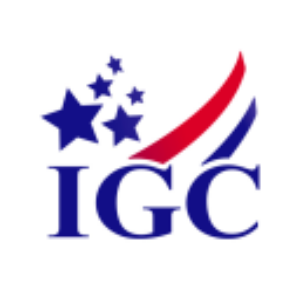IGC Pharma Announces Additional Phase 2 Interim Results Highlighting Cognitive Benefits of IGC-AD1 for Alzheimer's Treatment
- Interim results indicate cognitive improvement in the active treatment group compared to placebo
- No serious adverse events or deaths reported in the trial
These findings align with previously announced preclinical data, which showed a reduction in amyloid plaque aggregation by approximately
Cognitive Improvements: A Key Marker of Disease Progression
Cognitive decline in Alzheimer's disease reflects the deterioration of memory, attention, language, and reasoning due to underlying pathological changes, such as amyloid plaques and tau tangles. Interim results from the trial demonstrated that the active treatment group receiving IGC-AD1 twice daily for six weeks showed an average improvement of about
These results and the preclinical data provide a robust foundation for future trials focusing on cognition as the primary endpoint and exploring IGC-AD1's disease-modifying potential.
Ram Mukunda, CEO of IGC Pharma, commented, "The cognitive improvements observed in our interim results align with preclinical evidence of IGC-AD1's active pharmaceutical ingredients' impact on amyloid plaques and spatial memory. While agitation remains the primary focus of the Phase 2 trial, these exploratory findings strengthen our confidence in IGC-AD1's potential to address the broader pathology of Alzheimer's disease. For patients and caregivers, this potentially represents hope for improved care, and for our investors, it signifies a compelling opportunity in a growing market."
Primary Outcome: Agitation Reduction in Alzheimer's Patients
Agitation, a debilitating symptom affecting up to
Alzheimer's disease affects 6.7 million Americans, with the global Alzheimer's treatment market projected to exceed
About IGC Pharma (dba IGC):
IGC Pharma is an AI-powered, clinical-stage biotechnology company focused on developing innovative treatments for Alzheimer's disease and transforming patient care with fast-acting, safe, and effective solutions. Our portfolio includes the TGR family, including TGR-63, which targets amyloid plaques, a hallmark of Alzheimer's. The IGC-C and IGC-M platforms are advancing in preclinical studies, focusing on metabolic disorders, tau proteins, early plaque formation, and multiple disease hallmarks. Our lead therapeutic candidate, IGC-AD1, is a cannabinoid-based treatment currently in a Phase 2 trial for agitation in dementia associated with Alzheimer's (clinicaltrials.gov, NCT05543681). Clinical data for IGC-AD1 demonstrated that it has the potential to transform patient care by offering faster-acting and more effective relief compared to traditional medications. Additionally, our AI models are designed to predict potential biomarkers for the early detection of Alzheimer's, optimize clinical trials, and predict receptor affinity, among others. With 28 patent filings and a commitment to innovation, IGC Pharma is dedicated to advancing pharmaceutical treatments and improving the lives of those affected by Alzheimer's and related conditions.
Forward-looking Statements:
This press release contains forward-looking statements. These forward-looking statements are based largely on IGC Pharma's expectations and are subject to several risks and uncertainties, certain of which are beyond IGC Pharma's control. Actual results could differ materially from these forward-looking statements as a result of, among other factors, the Company's failure or inability to commercialize one or more of the Company's products or technologies, including the products or formulations described in this release, or failure to obtain regulatory approval for the products or formulations, where required, or government regulations affecting AI or the AI algorithms not working as intended or producing accurate predictions; general economic conditions that are less favorable than expected; the FDA's general position regarding cannabis- and hemp-based products; and other factors, many of which are discussed in IGC Pharma's
View source version on businesswire.com: https://www.businesswire.com/news/home/20241125476472/en/
IMS Investor Relations
Rosalyn Christian / Walter Frank
igc@imsinvestorrelations.com
(203) 972-9200
Source: IGC Pharma, Inc.









